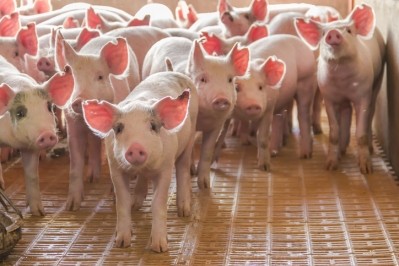US bio-based chemical company DMC attracts additional strategic investors

The company previously announced the first close of its Series B fundraising in December 2021, with participation from Cibus Enterprise, Capricorn Partners, Sofinnova Partners, Breakthrough Energy Ventures, SCG, Boulder Ventures, Solvay Ventures and Michelin.
DMC makes products using microbial fermentation. It claims its technology is transformative, that it enables competitive pricing.
The company intends to recruit additional top talent in senior management, metabolic engineering, and fermentation, and is currently progressing the commercial roll-out of its first product, an amino acid used as a bio-based chemical intermediate with primary applications in sustainable detergents and human nutrition.
It also has as a pipeline of products targeting industries such as animal nutrition, among others.
DMC has a manufacturing agreement in place with Conagen to begin serving customers globally in 2022 with its European manufacturing capabilities, and it is advancing additional manufacturing opportunities in the US and EU.
We ran a Q&A with CEO of DMC Biotechnologies, Dr Matt Lipscomb, to find out more:
FeedNavigator: When was the company founded and what was the background to its establishment?
Matt Lipscomb: DMC was founded in 2014 and has offices and labs in Boulder, Colorado and Durham, North Carolina in the US. The founders have considerable experience from previous biotechnology startups, which served as inspiration to create the foundation technology for DMC, which addresses key barriers that have challenged the industrial biotechnology field for decades; specifically, standardization, robustness and predictability across scale.
FEN: What is so breakthrough about DMC’s fermentation technology?
ML: DMC’s technology is a combination of a standardized, two-stage fermentation process that decouples growth from production and creates two optimal states in time - growth and production - by dynamically 're-wiring' metabolism through the use of gene silencing and targeted proteolysis.
Select technology features include: standardization of the fermentation process that is independent of the product, which eliminates long cycles of process development; robustness of the process environment across a much larger landscape of conditions that would customarily be encountered at full industrial scale, and predictive performance from high-throughput to full commercial scale.
The net result of these technology features is unprecedented efficiency in time and capital to take projects from concept to commercialization.
FEN: What is innovative about the company’s approach to BCAA production, and how does the product support precision feeding?
ML: The concept of precision animal feeding is to meet the nutritional needs of the animal during each stage of growth while minimizing the generation of waste products. Though it has had different names over the years, the general idea was implemented decades ago by supplementation with essential amino acids: lysine, threonine, and methionine. Branched chained amino acids (BCAA) including valine, isoleucine, and leucine, are the next limiting essential amino acids in poultry and swine diets. Adoption by feed formulators has, until recently, been limited by the high cost of these products.
Our technology enables a reduction in the cost of goods to produce BCAA, which in turn, will enable greater market adoption. The additional value proposition that has resonated with customers is the ability to source the critical ingredients from a manufacturer located in Europe. Increased concentration of amino acid production in Asia has created supply chain risks that have been vividly highlighted during the pandemic. In the case of critical raw materials for the food supply chain, these risks are increasingly being perceived in the context of domestic food security.
FEN: When will the feed targeted product be launched and has DMC been running feeding trials in commercial or academic settings in relation to BCAA?
ML: Commercial scale production for BCAA products is in the planning stages. We are presently working with customers to understand their needs in terms of sample size and form as this will define our needs for large scale production.









